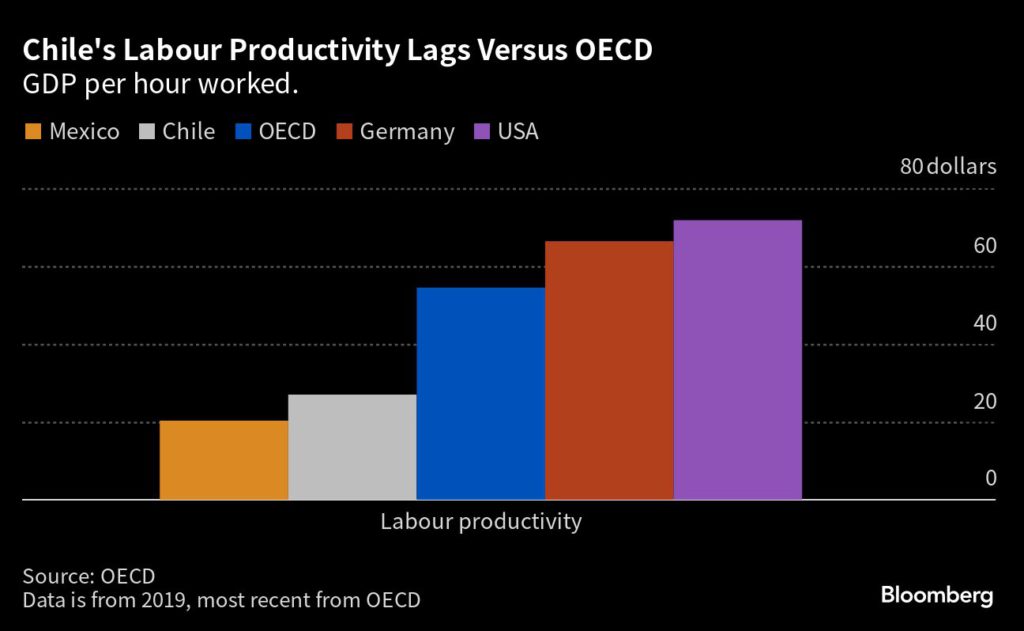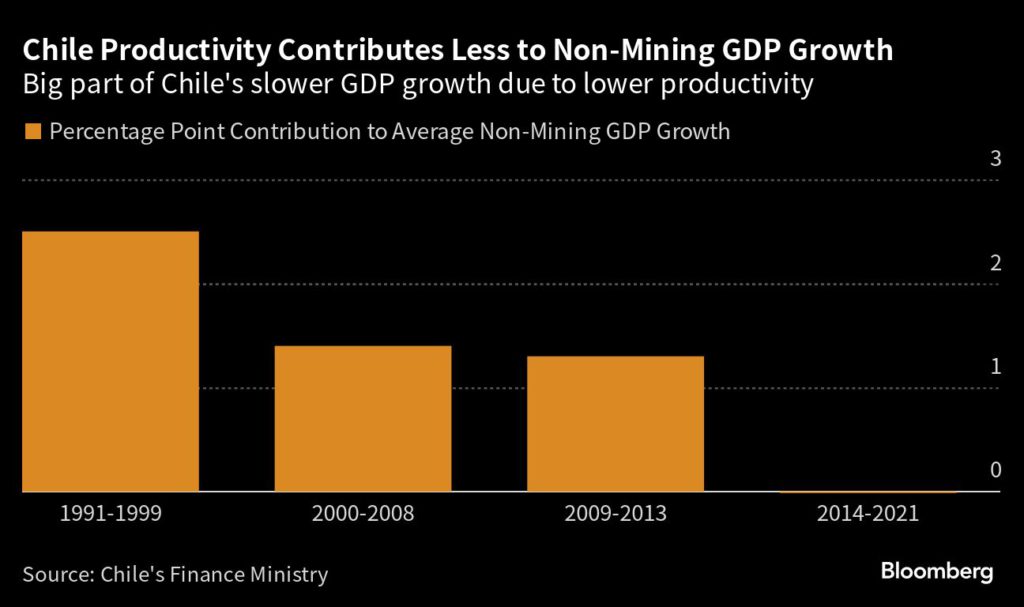
Chilean President Gabriel Boric embarks on his first trip to China with an ambitious agenda that seeks deals to make the country’s economy more efficient and help it develop beyond its traditional commodities exporter role.
“We want to move toward a new stage that includes investments in the country that help us improve productivity,” Chile International Economic Relations Undersecretary Claudia Sanhueza said in an interview ahead of Boric’s first trip to the Asian country next week.
Officials from both nations have been working on agreements in areas including technology, innovation and education and will sign about a dozen accords during the trip, Sanhueza said while declining to provide further details.
While Chile’s trade with China surpassed $65 billion last year, most of its exports are dominated by copper and much of it is shipped in the form of concentrates to be refined by Chinese smelters. Boric’s government is looking to revive a stalled economy, building up industries that add value to its copper, lithium and fruit exports, after a three-decade run that saw Chile becoming one of Latin America’s richest countries faded out.
It is an ambitious policy goal, with Chile typically expanding the range of raw materials it exports, or adding small amounts of value, rather than moving onto more industrial goods. Total factor productivity, a measure of output per unit of input including labor, capital or other resources, has fallen since 2012 as the gains of the 1990s and 2000s petered out.
Moreover, the government is conscious about the need to strike a delicate balance between China and the US, its two top trading partners, as their relation remain tense.
“We’ve treated everyone in a neutral way,” Sanhueza said when asked if there are challenges in deepening trade ties with the US and China at the same time. “What we want to have is political autonomy, and that points toward striking a balance.”

When Boric, who has been outspoken about the need to protect human rights from Venezuela to Nicaragua, was asked after the recent meeting of the United Nations in New York whether he would maintain his stance during his China visit, his reply was a simple, if slightly uncomfortable — “Yes.”
Boric will leave for China together with a team of cabinet members on Oct. 12. The government will hold investor events, company visits and seminars across the cities of Shenzhen, Chengdu, Beijing and Shanghai on Oct. 14-20.
A free trade agreement between the two countries came into effect in 2006. An update of the accord was implemented in 2019, with new details on topics including electronic commerce and the environment.
University of Cambridge-educated Sanhueza, who is going onto Japan and India after the trip to China, is leading efforts to advance existing trade deals and negotiate new accords.
“Chile is trying to open up other markets,” she said. “We expect to broaden our trade agreement with India.”

The trip comes as China, the world’s second-largest economy, is trying to regain traction amid an ongoing property crisis, as well as weak consumer and business confidence. China has rolled out stimulus including cutting bank reserve requirements, slashing interest rates and easing home-purchase requirements.
“It’s worrisome in the short-term,” Sanhueza said on the Chinese economy. “But, in the mid and long term, one would expect it to adjust well.”
Chile’s own economy is wading through a rough patch amid high borrowing costs and waning demand. The central bank’s proxy for gross domestic product unexpectedly contracted in August, indicating greater odds of a recession, while the government has lowered its 2023 growth forecast to zero.
(By Matthew Malinowski and Eduardo Thomson)
Comments